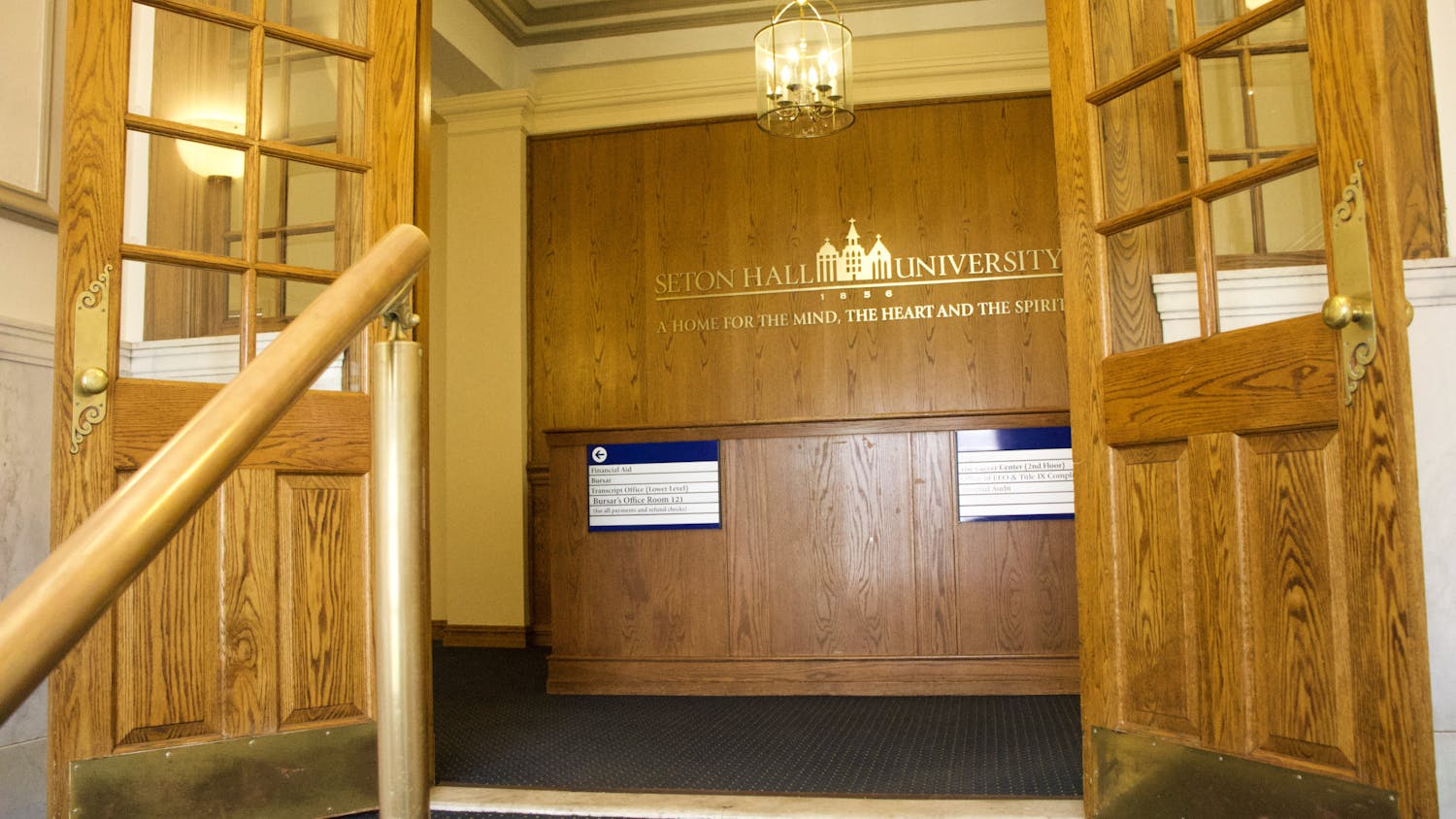The Office of the Provost has formed the Block Scheduling Committee, a faculty, student and administration collective assigned to negotiate alternatives to the recently published spring 2013 schedule revisions.
According to an email sent to the Faculty Senate on Tuesday, Sept. 11, the faculty members of the committee are Dr. Thomas Rzeznik, interim chair of the history department, Dr. Ann Hunter, psychology professor, and Dr. Ben Beitin of the College of Education and Human Services.
According to Rzeznik, all individual department chairs have been told to put their currently compiled schedules on hold in lieu of the meeting, scheduled for Monday Sept. 17.
The task force has set an Oct. 1 deadline with the Provost's Office and Faculty Senate to set the final schedule guidelines, according to Dr. Mary Balkun, a Faculty Senate chair for the College of Arts & Sciences.
According to Balkun and Rzeznik, Dean Michael Zavada of the College of Arts & Sciences addressed faculty on Aug. 31, requesting that any faculty objecting to the schedule change, which when proposed eliminated morning and afternoon 75-minute Monday and Wednesday courses, submit a revised schedule of their own.
"I know [the new deadline] pushes things back, but I believe that is a necessary evil at this point," Balkun said.
Chair of the faculty senate, Dr. David Beneteau said the faculty and administration are willing to work to find a schedule that will work in everyone's favor.
"The administration and the faculty share the concern that it is difficult for students to find the classes they need," Beneteau said.
"We are working together to try to maximize the choices of classes and schedules offered to students. We're also happy to be able to work together with the students on this initiative to find a schedule that works in everyone's best interest and minimizes disruption for those who have working obligations."
Associate Provost of Finance and Administration Nicholas Snow said the committee needs to focus on increasing availability of rooms in prime hours such as 10 a.m. to 2 p.m. from Monday to Thursday, because not having enough space is the primary reason these schedule alterations are necessary.
"We need to accommodate all needs and uses of space," Snow said. "We are trying to eliminate the times when classrooms are not in use."
Rooms that are being used for courses this semester include the Walsh Library Beck Rooms, ITV rooms, study rooms and conference rooms, according to Snow.
"The optimal outcome here is for every student to have a schedule of their choice that adds to their degree," Snow said.
Senior Associate Provost Joan Guetti said that this is "not a new process."
According to Guetti, many programs such as nursing, biology and physics have seen such an increase in enrollment stress that in order for those courses to meet while adhering to safety guidelines, the schedule must offer more space.
"This is an ongoing evaluation," Guetti said. "We have a responsibility to provide classes to the students."
The Provost's office allowed two student seats on this committee, which the Student Government Association has assigned to junior Drew Holden, academic affairs chair, and sophomore Jason Sumbaly, chair of the finance committee.
"We are extremely grateful that the Provost's Office has decided to include students and we appreciate having our voices heard," Holden said.
Holden and Sumbaly said their end goal is to create a class schedule that balances the needs of students with the realities of time and space issues.
"We hope to reach a solution that accommodates all parties and places the best interest of the students first," Joe Donato, SGA president said.
Both Snow and Guetti said that they are "looking forward" to the upcoming process.
Balkun said the schedule they are working on now would optimally replace the five time slot option with a six time slot option.
Balkun added that the problem with the schedule is "not about the faculties' unwillingness to work on Fridays," but about "equity" and dealing with upperclassmen's conflicting work obligations.
Guetti said that since addressing the space issues over the course of the summer and into this semester, many faculty have "understood" and have "been extraordinarily helpful," having "risen to the challenge" and been cooperative in the process of adjusting to the enrollment pressure.
Rzeznik said that the schedule came "without prior input from department chairs."
"The schedule runs into problems with pedagogical needs in terms of courses that we have to run," Rzeznik said, addressing the conflicts department chairs will face in accommodating the schedule guidelines with faculty members' own schedules.
According to Dr. John Saccoman, department chair of math and Faculty Senate chair, the currently proposed schedule does not work for student benefit for a few reasons.
"There are a lot of reasons that that doesn't work pedagogically. Sometimes upper-level classes need 75 minutes to get the point across," Saccoman said.
Saccoman also said trying to figure out a schedule that accommodates to students' internships is a major concern, and that it must be "fair and equitable."
"We would be consigning our majors, half of whom are Education, to a five-day course schedule. It would be difficult for them to do their internships," Saccoman said.
Rzeznik said balance, scheduling and amount of space are the components students need.
"The schedule needs to serve our classes rather than having our classes serve the schedule," Rzeznik said.
Charlotte Lewis can be reached at charlotte.lewis@student.shu.edu.
Lindsay Rittenhouse can be reached at lindsay.rittenhouse@student.shu.edu.





